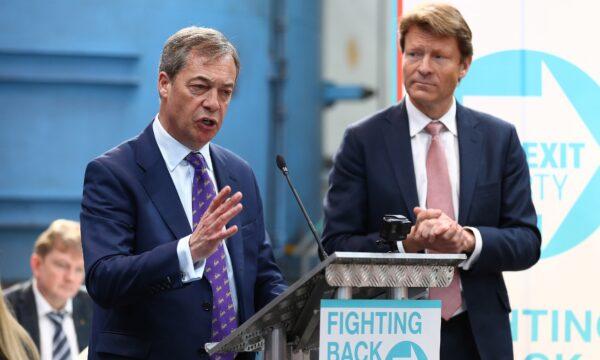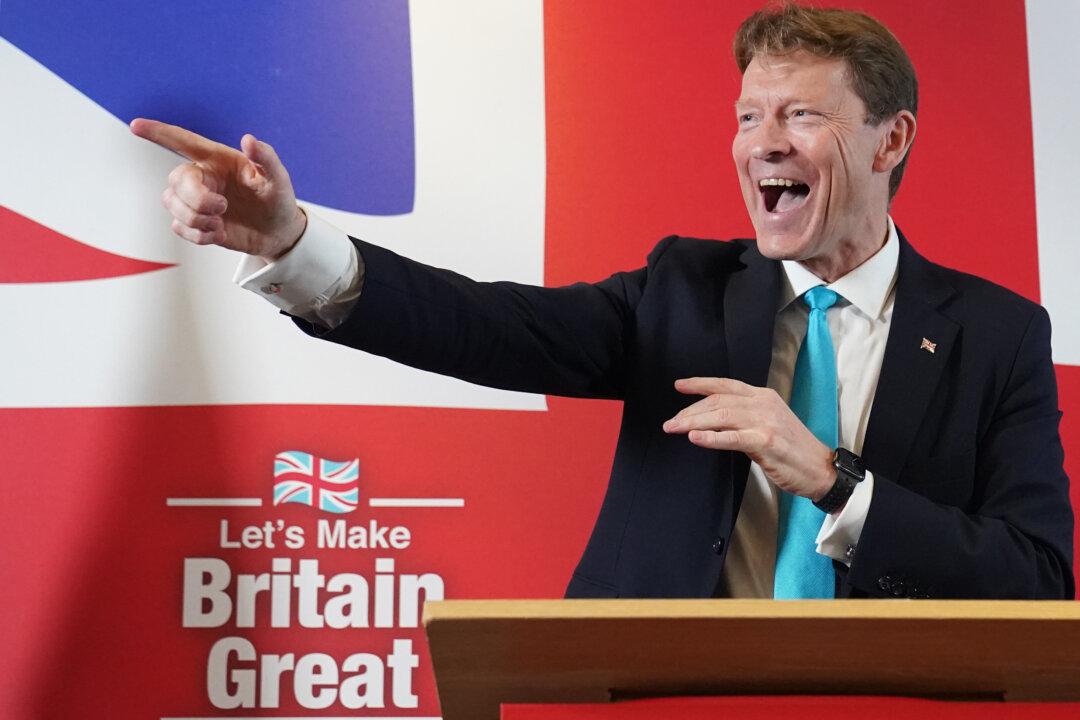Reform UK is beating the Conservative Party among working class voters and has hit a record high in Westminster polling intentions, a survey has found.
Among the middle class, the gap is far wider, with only 11 percent backing Reform UK compared with 21 percent who support the Tories.
Record-High Support
YouGov conducted the research of 2,061 adults in Britain between March 26 and 27. It shows Reform UK reaching record-high support among voters for the second week in a row.Reform UK now has the backing of 16 percent of voters, placing them in third behind the Conservatives who are on 21 percent. Meanwhile, Labour has maintained a significant lead, placed first with 40 percent of the vote.
Elsewhere, the Liberal Democrats are on 10 percent and the Greens are on 8 percent.
However, most respondents (47 percent) are unsure of who would make the best prime minister, with 31 percent opting for Sir Keir and only 18 percent for Prime Minister Rishi Sunak.
1 in 5 2019 Tory Voters Back Reform UK
Another poll, conducted by Techne UK for the Daily Express, last week found that more than one in five (21 percent) of 2019 Tory voters now back Reform UK.“This is a quite staggering level of direct ‘switchers’ from Conservatives to Reform UK,” Techne UK Chief Executive Michela Morizzo remarked.
Conservatives Abandoned the North of England
Last week, Tory candidate for mayor of Greater Manchester, Dan Baker, switched to the Richard Tice-led party because he said that the Conservatives had “given up” on the north of England.“I think, in truth, they’ve given up on Greater Manchester and the north of England,” Mr. Baker said.
He said the Tories had opted instead to focus on constituencies in the south which are under threat from the Liberal Democrats.

Under the leadership of Boris Johnson and with the promise of delivering Brexit, the Conservatives had managed to gain a swathe of seats in the industrial heartlands of the Midlands and North—collectively called the “Red Wall” because they traditionally voted Labour—in the 2019 General Election.
Ministers Resign from Sunak’s Government
This week, two ministers resigned from the government, triggering a mini Cabinet reshuffle.Robert Halfon resigned as minister of state for skills, apprenticeships, and higher education on Tuesday, being replaced by Luke Hall.
Also on Tuesday, James Heappey stood down as armed forces minister and was replaced by Leo Docherty.
Both Mr. Halfon and Mr. Heappey are standing down at the next election.

Their intention to leave the Commons brings the number of Conservative MPs standing down at the next General Election to 63, which includes a number of prominent Tories such as former Prime Minister Theresa May, former Deputy Prime Minister Dominic Raab, and former Health Secretary Matt Hancock.
Across the House of Commons, 99 MPs have announced their intention to stand down.
Comparative to other election cycles, this is not a significantly higher number. According to a House of Commons research briefing, 74 MPs did not stand for reelection in 2019. An average of 87 MPs stood down at general elections between 1979 and 2010.
The last possible date for an election is Jan. 28, 2025.







